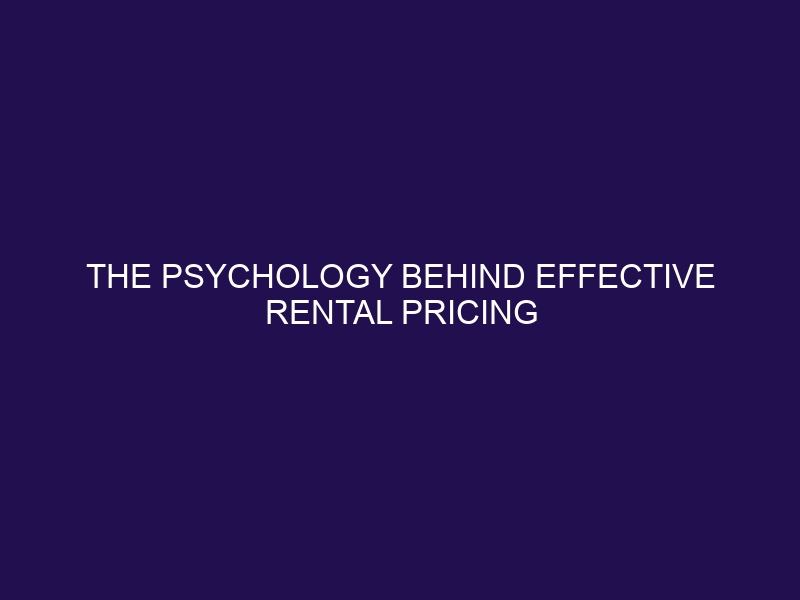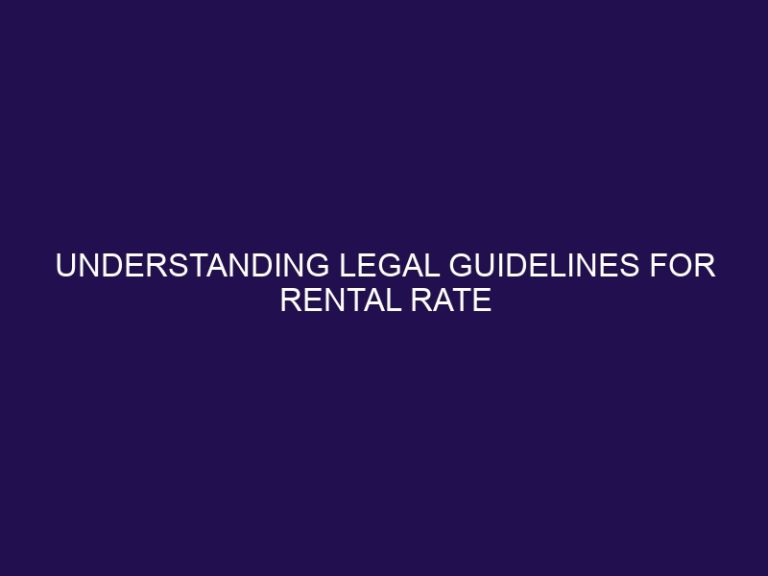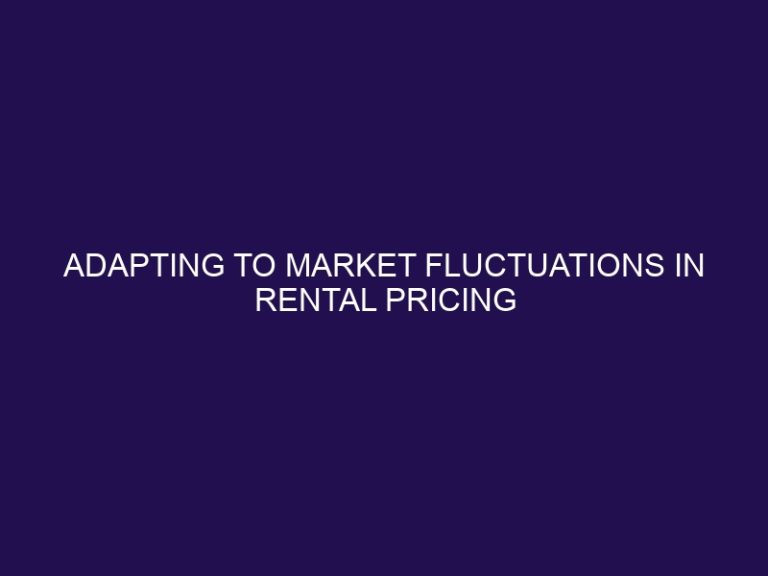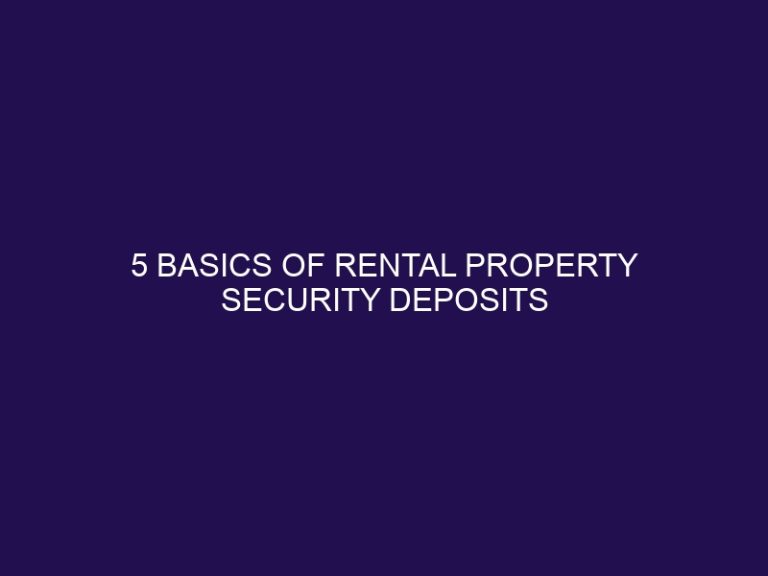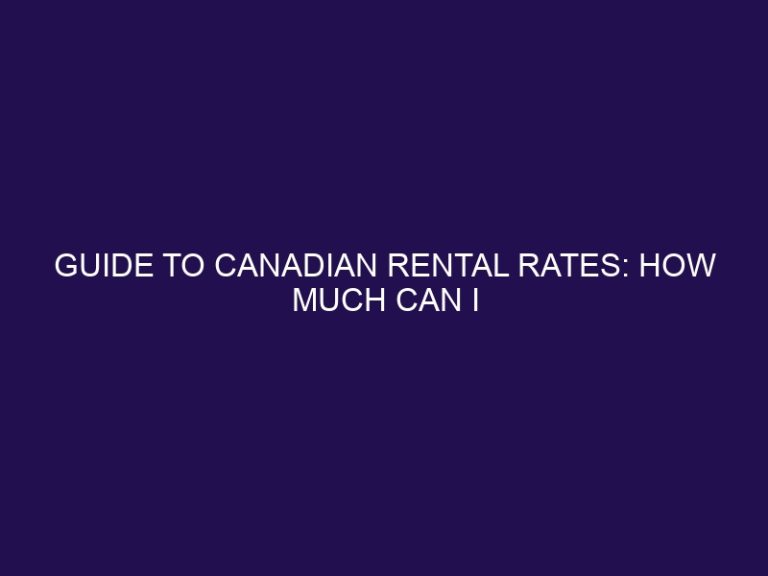The Psychology Behind Effective Rental Pricing
Understanding rental pricing is crucial for any landlord or property manager looking to attract quality tenants and maximize profitability. It involves setting a price for your rental property that is both appealing to potential tenants and profitable for you as the owner. However, determining the right rental price can be challenging and involves considering various factors such as location, property features, and market trends.
The psychology behind effective rental pricing plays a significant role in setting the right rental price. Emotions, anchoring effect, scarcity, and endowment effect are all psychological factors that can influence the perceived value of your rental property and ultimately impact the rental price.
Emotions can significantly influence rental pricing, as potential tenants’ emotional responses to a property can affect their willingness to pay a certain price. For example, a well-maintained and aesthetically pleasing property can evoke positive emotions and justify a higher rental price.
The anchoring effect is a cognitive bias where people rely heavily on the first piece of information they receive when making a decision. In the context of rental pricing, this means that the first price a potential tenant sees for a property can serve as an anchor and influence their perception of the property’s value.
Scarcity can also play a role in rental pricing. When a property is in high demand and limited supply, the perceived value of the property increases, and landlords can justify charging a higher rental price.
The endowment effect is another psychological factor that can impact rental pricing. It refers to the tendency for people to value something more when they feel like they own it. In the rental context, this means that potential tenants may be willing to pay a higher price for a property they believe is theirs for a certain period.
To set an effective rental price, landlords and property managers can consider these psychological factors, along with other practical tips such as researching the market, considering the local economy, analyzing the property’s features and amenities, understanding the target tenant’s needs and wants, using psychological pricing techniques, and regularly monitoring and adjusting the pricing strategy.
Finding the right rental price is crucial as it can attract quality tenants, maximize profitability, and maintain a competitive edge in the rental market. By understanding the psychology behind effective rental pricing and utilizing these tips, landlords and property managers can set a rental price that benefits both themselves and their tenants.
Understanding Rental Pricing
To fully comprehend rental pricing, one must carefully examine market demand, property location, amenities, and competition. By taking these factors into account, landlords can establish competitive and attractive rental rates.
A landlord in New York City successfully adjusted her rental price after conducting research on comparable listings, resulting in a higher number of tenant inquiries and a faster lease signing.
What Factors Affect Rental Pricing?
Location, property size, amenities, local demand, and the economy are all important factors that can impact rental pricing. It is essential to have a good understanding of these factors in order to set competitive rental prices.
The Role of Psychology in Rental Pricing
Understanding the significant impact of psychology on rental pricing is essential for landlords. Psychological factors such as anchoring, framing, and the decoy effect can greatly influence tenant perceptions and decisions, ultimately affecting the profitability and occupancy rates of a property. By implementing strategic pricing models that take into account these psychological principles, landlords can potentially maximize rental income and improve tenant satisfaction.
How Do Emotions Affect Rental Pricing?
- Emotions can have a significant impact on rental pricing, as they can influence the perception of property value and affect a potential tenant’s willingness to pay.
- Positive emotions, such as excitement or satisfaction, can lead to a higher perceived value of a property, allowing for premium pricing.
- On the other hand, negative emotions, such as disappointment or frustration, may lead to price reductions or incentives being offered to attract tenants.
What is the Anchoring Effect in Rental Pricing?
What is the Anchoring Effect in Rental Pricing? The anchoring effect in rental pricing is a cognitive bias where the first piece of information a person receives heavily influences their decision-making process. For landlords, this means that the initial rental price suggested to a potential tenant can significantly impact their perception of what is reasonable.
How Does Scarcity Impact Rental Pricing?
- Scarcity increases demand, allowing landlords to set higher rental prices.
- It creates a sense of urgency among potential tenants, leading to quicker decision-making.
- Rare properties in high-demand areas can command premium rents due to scarcity.
Did you know? How Does Scarcity Impact Rental Pricing? Scarcity also influences rental property investment, impacting potential returns and property value.
What is the Endowment Effect in Rental Pricing?
What is the Endowment Effect in Rental Pricing?
The endowment effect in rental pricing refers to the tendency for property owners to overvalue their rental assets, leading to higher listing prices. This bias occurs because owners perceive their property as more valuable simply because they own it. A real-life example involves a landlord initially setting a rental price based on emotional attachment, then adjusting it after market research.
Tips for Setting an Effective Rental Price
As a landlord or property owner, setting the right rental price can greatly impact your success in the rental market. To help you maximize your profits and attract the right tenants, we’ll be discussing some valuable tips for setting an effective rental price. From researching the market to understanding the psychology behind pricing, we’ll cover everything you need to know in order to set a competitive and enticing rental price for your property. So, let’s dive in and explore the key factors to consider when determining the perfect rental price.
1. Research the Market
- Conduct a thorough comparison of rental prices for similar properties in the area.
- Analyze current market trends and the dynamics of supply and demand.
- Take into account the influence of location, amenities, and property condition when determining pricing.
By researching the market, landlords can set competitive rental rates, attract potential tenants, and increase profitability.
2. Consider the Local Economy
- Assess local economic indicators such as employment rates and income levels to determine the state of the economy.
- Evaluate housing demand and supply dynamics in the area to better understand the housing market.
- Analyze rental price trends in similar neighborhoods or districts to gain insight into the rental market.
3. Analyze Your Property’s Features and Amenities
- Evaluate property size, layout, and condition.
- Assess amenities such as parking, laundry, and outdoor space.
- Analyze the neighborhood’s safety, convenience, and proximity to essential services.
Did you know? Quality amenities can increase property value by 5-10%.
4. Understand Your Target Tenant’s Needs and Wants
- Research the preferences and lifestyle of your target market.
- Consider amenities and features that align with the needs and wants of your target tenants.
- Understand the demographics and psychographics of your potential tenants.
- Adapt your property to cater to the specific desires and preferences of your target tenants.
In the early 20th century, urban landlords began installing elevators and central heating to meet the growing demand of city dwellers, leading to increased property values.
5. Use Psychological Pricing Techniques
- Set Charm Prices: Utilize prices ending in 9, 99, or 95 to create a perception of a lower cost.
- Bundle Pricing: Offer multiple services or amenities together at a marginally reduced price.
- Prestige Pricing: Highlight luxury features with slightly higher price tags to convey exclusivity.
5. Use Psychological Pricing Techniques
6. Monitor and Adjust Your Pricing Strategy
- Regularly review rental market trends.
- Adjust pricing based on demand and competition, using a strategic and data-driven approach.
- Consider seasonal fluctuations and economic changes when setting rental prices.
- Seek feedback from tenants and track vacancy rates to stay informed about market trends.
In 2007, a property management company successfully implemented a bi-annual pricing adjustment strategy, resulting in increased tenant satisfaction and higher occupancy rates.
The Importance of Finding the Right Rental Price
Finding the right rental price is crucial for success in the rental market, as it can greatly impact the quality of tenants, profitability, and competitiveness of a rental property. In this section, we will delve into the importance of setting an effective rental price and its direct effects on attracting quality tenants, maximizing profitability, and maintaining a competitive edge. By understanding the psychology behind effective rental pricing, landlords and property owners can make informed decisions to achieve their goals in the rental market.
1. Attracting Quality Tenants
- Enhance Property Appeal: Ensure the property is well-maintained and offers attractive amenities to attract quality tenants.
- Transparent Communication: Clearly communicate lease terms, maintenance procedures, and tenant responsibilities to potential tenants.
- Thorough Screening: Implement a rigorous tenant screening process to attract reliable and high-quality tenants.
2. Maximizing Profitability
- Ensure optimal rental price in line with market rates and property value.
- Implement cost-effective property enhancements to justify higher rents.
- Regularly assess and adjust rents based on demand and competition.
Maximizing profitability in rental pricing involves strategic pricing, property improvements, and adaptability to market dynamics.
3. Maintaining a Competitive Edge
- Regularly Analyze Competitors’ Pricing Strategies
- Offer Unique Amenities or Services
- Focus on Tenant Retention through Exceptional Customer Service
- Implement Strategic Marketing and Promotion Techniques to Maintain a Competitive Edge
Frequently Asked Questions
What is the psychology behind effective rental pricing?
How can landlords use psychology to attract tenants and maximize profits for their rental homes?
The psychology of pricing can play a significant role in the success of renting homes. By understanding the concept of ‘left digit anchoring’, landlords can set a price that is perceived as lower and more attractive to potential tenants. This, along with other psychological pricing tactics and color psychology, can help landlords stand out in a competitive market and attract more tenants.
How does the ‘left digit anchoring’ technique work in rental pricing?
Why is it important for landlords to understand the power of numbers when setting their rental prices?
‘Left digit anchoring’ is a psychological pricing tactic used by retailers to create a perception of savings for consumers. In the context of renting homes, a price of $1199 is often perceived as lower than $1200 due to the power of seven and the ’99’ syndrome. By understanding this concept, landlords can strategically price their rental homes to attract more tenants.
What is color psychology and how can it be used in renting homes?
How can landlords use color psychology to create a desirable atmosphere in their rental properties?
Color psychology is the study of how different colors can evoke different emotions in individuals. Landlords can use this knowledge to enhance the perceived quality of their rental homes by choosing colors that align with the desired atmosphere for each room. For example, muted shades of green, blue, and lavender can create a calming effect, making a rental property more attractive to potential tenants.
How can landlords future-proof their rental prices?
What are some ways landlords can adapt their rental pricing strategy to the evolving landscape of the rental market?
With the rise of the sharing economy and the increasing popularity of platforms like Airbnb, the rental market is constantly evolving. Landlords can future-proof their rental prices by staying informed about market trends and being open to adjusting their prices and strategies. This can help them attract more tenants and maximize their profits in the long run.
How can landlords effectively negotiate rental prices?
What are some tips for landlords to successfully negotiate rental prices with potential tenants?
Negotiation is a crucial aspect of renting homes, and landlords can use the power of four and the ’99’ syndrome to their advantage. By setting a slightly higher asking price and offering discounts or incentives, landlords can create a win-win pricing strategy that can attract buyers and increase their perceived value. It is also important for landlords to have non-negotiable criteria and be open to compromise to reach a mutually beneficial agreement.
How can landlords use psychology to attract and retain good tenants?
What are some psychological tactics landlords can use to attract and retain high-quality tenants?
Landlords can use a combination of psychological pricing tactics, color psychology, and understanding the demographics of their target tenants to attract good tenants. They can also consider implementing smart home technology, which appeals to the tech-savvy generation and can be a differentiating factor for potential prospects. Additionally, providing excellent customer service, taking good care of the property, and being open to negotiation can help retain good tenants for longer periods of time.

